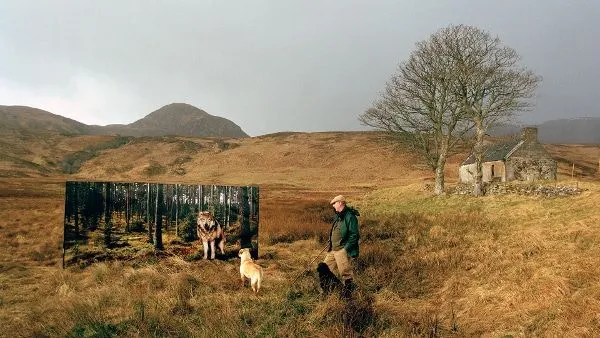Eye For Film >> Movies >> Serengeti Rules (2018) Film Review
Serengeti Rules
Reviewed by: Jennie Kermode

A year ago, most people in positions of political authority around the world denied that climate change and environmental degradation was a real threat, discouraging people from taking action. Now, increasingly, people are hearing that these things are a real threat, and that humans are on the road to extinction, discouraging them from taking action. After all, why fight if it's already game over? The thing is, that's not quite true. There are still things we can do to turn things around. It's matter of understanding, a matter of finance, a matter of will. If you need evidence, look at the Serengeti.
Nicolas Brown's exquisitely photographed documentary follows the work of five scientists alert to the Serengeti rules. These broad plains, which span some 12,000 square miles, are thought to be one of the first homes of humankind. Over the last few decades they have witnessed a remarkable phenomenon. Whereas populations of animals - especially large mammals - have been declining across the globe, here they have grow. Why? What's the secret? To understand it, you'll need to start by thinking about predators.
Beginning with the legendary Bob Paine, the first biologist who tested and spelled out what happens when top predators are removed from an environment, the film expands to look at what five different scientists have discovered about keystone species - not always predators but united by their importance in keeping ecosystems in balance. Paine identified the issue by removing starfish from tidal pools - there are joyously anarchic clips of him picking them up by hand and simply hurling them into the ocean - following which, with nothing to stop them, mussel populations exploded, driving out all the other species in the pools. Browne goes on to look at examples of similar incidents occurring in the wild, often as a result of human intervention, illustrating how the effects can cascade through a series of species and interconnected environments to cause extinctions and massive systemic damage.
Not only is the film thorough and engaging, it explains what's happening in such a way that viewers will be able to identify examples of similar events in their own local environments. From leaf-cutter ants overwhelming trees to sea urchins destroying kelp forests, the scale of the destruction that can occur in a very short time when things get out of balance is startling. But life on Earth hasn't ticked along for all these millennia without previous upsets, and it's when Brown demonstrates what can happen when an effort is made to set things right that the film gets really interesting. The sudden richness of nature where this has been done looks almost magical - algae-choked pools in a US river turned sparkling and clear, a barren Scottish field turned thick with green trees and purple heather.
Not every challenge is quite this simple to resolve and the film does skim over the tricky ones a bit. Just how does one persuade killer whales to change their eating habits once they've developed the techniques needed to harvest tasty sea otters? And what happens to a bass in a pond once it has eaten all the other fish? But there is clearly not room to go into everything, and these problems aside, Brown gets his message across very effectively. We're getting used to living in a degraded environment, but we don't have to. Small changes can make a big difference. We have the manual for nature now. We need to use it.
Reviewed on: 07 Nov 2019















